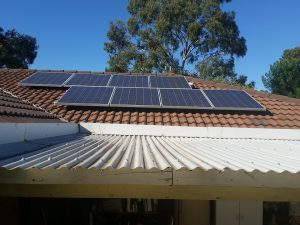
Are you thinking about buying solar panels for your home? Solar has become an increasingly common source of power for both commercial properties and residential properties. According to the U.S. Department of Energy (DOE), roughly 3% of all electricity produced in the United States is solar. While solar panels cost money, however, they are typically a smart investment for the following reasons.
Long-Lasting
Solar panels are long-lasting. There are several different types of them, including polycrystalline and monocrystalline solar panels. Regardless of the type, they all last a long time. Most solar panels last for up to 30 years when properly maintained.
Reduce Utility Power Usage
You won’t have to rely on utility power with solar panels. All solar panels will provide your home with renewable electricity. They’ll generate electricity from sunlight. As this electricity is generated, it will enter your home’s electrical system to power various devices and appliances. The bottom line is that you won’t need to use as much utility power if your home is equipped with solar panels.
Tax Rebates
Solar panels are eligible for tax rebates. For solar panels purchased between 2020 and 2022, you can typically deduct 22% of the total cost. If you spend $10,000 on solar panels, for example, you can claim a tax deduction of about $2,200. Known as the Solar Tax Credit, it’s a federal tax rebate that’s designed to encourage homeowners to invest in solar panels. Businesses that invest in solar panels are eligible for a similar tax credit, the Investment Tax Credit (ITC).
Environmentally Friendly
Of course, solar panels are environmentally friendly. This alone is reason enough for many homeowners to purchase and install them. With solar panels, you can generate clean and renewable electricity without relying on utility power.
Net Metering and Feed-In Tariffs
Another reason solar panels are a smart investment involves net metering and feed-in tariffs. Net metering and feed-in tariffs are agreements between homeowners and utility power companies that involve the sale of excess solar power. Depending on how many solar panels you install, as well as the size of the solar panels, they may generate more electricity than what’s needed to power your home. Net metering and feed-in tariffs allow you to sell some of this excess solar power to a utility power company. The utility power company may compensate you with credits, which you can apply to the purchase of future utility power.
